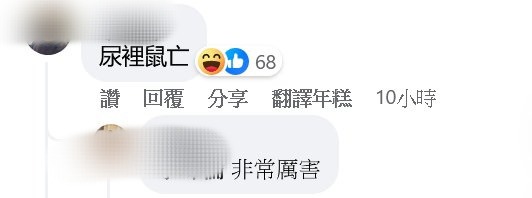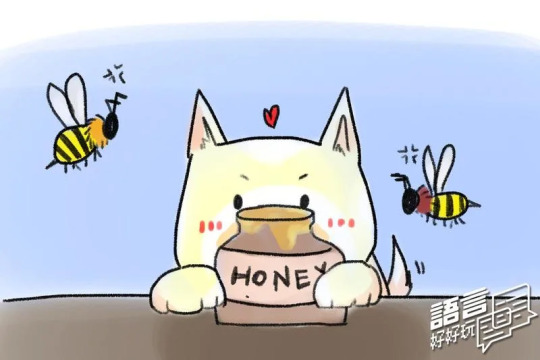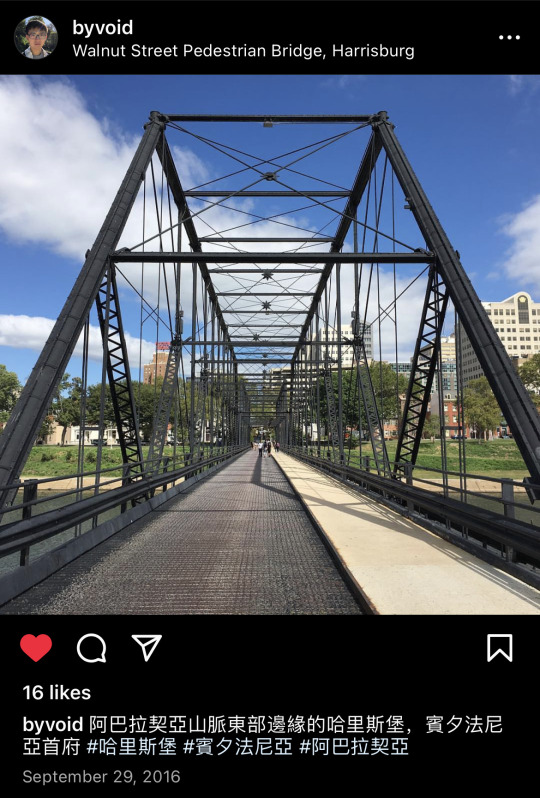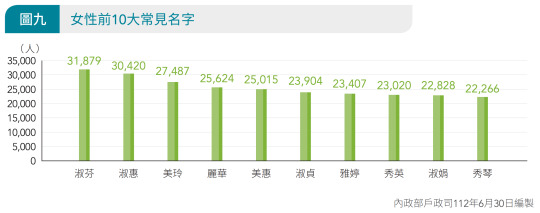#taiwanese mandarin
Text
my head be spinning trying to understand the Taiwanese accent fr
#Taiwan#Taiwanese#mandarin#Chinese#Mandarin Chinese#Taiwanese Mandarin#why do they have to pronounce sh like s#and then they’ll pronounce c like ch#and I can’t keep up#truly#I get so confused#but also my accent has gradually become more Taiwanese#I’ve completely lost the 兒化#兒化#who’s she#我不認識她
0 notes
Text
50+ fundamental crime, suspense, & mystery Cdrama vocab words

I'm currently watching 《模仿犯》, so I was inspired to put together this list of essential vocab for 犯罪剧/悬疑剧/推理剧. I tend to gravitate towards dramas that fall into these genres.
I've sorted the words into categories. These were determined by vibes only. Definitions are adapted from MDBG, my loyal companion for nearly 10 years.
The Case
案子 ànzi - case / law case / legal case / judicial case
案件 ànjiàn - case / instance
办案 bàn'àn - to handle a case
破案 pò'àn - to solve a case
报案 bào'àn - to report a case to the authorities
命案 mìng'àn - homicide case / murder case
作案 zuò'àn - to commit a crime
现场 xiànchǎng - the scene (of a crime, accident etc) / (on) the spot / (at) the site
证据 zhèngjù - evidence / proof / testimony
真相 zhēnxiàng - the truth about sth / the actual facts
The Investigation
厘清 líqīng - to clarify (the facts) / clarification
线索 xiànsuǒ - trail / clues / thread (of a story)
细节 xìjié - details / particulars
痕迹 hénjì - vestige / mark / trace
追踪 zhuīzōng - to follow a trail / to trace / to pursue
追问 zhuīwèn - to question closely / to investigate in detail / to examine minutely / to get to the heart of the matter
排除 páichú - to eliminate / to remove / to exclude / to rule out
嫌疑 xiányí - suspicion / to have suspicions
怀疑 huáiyí - to doubt (sth) / to be skeptical of / to have one's doubts / to harbor suspicions / to suspect that
跟踪 gēnzōng - to follow sb's tracks / to tail / to shadow / tracking
不对劲 búduìjìn - fishy / wrong / not right
隐瞒 yǐnmán - to conceal / to hide (a taboo subject) / to cover up the truth
The Victim
被害者 bèihàizhě - victim (of a wounding or murder)
受害者 shòuhàizhě - casualty / victim / those injured and wounded
幸存者 xìngcúnzhě - survivor
失踪 shīzōng - to be missing / to disappear / unaccounted for
消失 xiāoshī - to disappear / to fade away
绑架 bǎngjià - to kidnap / to abduct / to hijack / a kidnapping abduction / staking
遗体 yítǐ - remains (of a dead person)
尸体 shītǐ - dead body / corpse / carcass
拯救 zhěngjiù - to save / to rescue
寻人启事 xúnrénqǐshì - missing persons notice
The Perpetrator
嫌疑犯 xiányífàn - a suspect
嫌疑人 xiányírén - a suspect
歹徒 dǎitú - evildoer / malefactor / gangster / hoodlum
凶手 xiōngshǒu - murderer / assassin
一伙儿的 yìhuǒrde - in on it together
开枪 kāiqiāng - to open fire / to shoot a gun
鬼鬼祟祟 guǐguǐsuìsuì - sneaky / secretive / furtive
可疑 kěyí - suspicious / dubious
认罪 rènzuì - to admit guilt / to plead guilty
自首 zìshǒu - to give oneself up / to surrender (to the authorities)
下落 xiàluò - whereabouts / to drop / to fall
动机 dòngjī - motive / motivation
犯罪 fànzuì - to commit a crime / crime / offense
The Police
报警 bàojǐng - to sound an alarm / to report sth to the police
警察 jǐngchá - police / police officer
警方 jǐngfāng - police
警官 jǐngguān - constable / police officer
刑警 xíngjǐng - criminal police (abbr. for 刑事警察)
被捕 bèibǔ - to be arrested / under arrest
包围 bāowéi - to surround / to encircle / to hem in
监控 jiānkòng - to monitor
检查 jiǎnchá - inspection / to examine / to inspect
调查 diàochá - investigation / inquiry / to investigate
排查 páichá - to inspect / to investigate one by one
质问 zhìwèn - to question / to ask questions / to inquire / to bring to account / to interrogate
前科 qiánkē - criminal record / previous convictions
Bonus: Here's a list of dramas I have seen/am watching in these categories:
《想见你》 Someday or One Day
《开端》 Reset
《消失的孩子》 The Disappearing Child
《她和她的她》 Shards of Her
《镇魂》 Guardian
《模仿犯》 Copycat Killer
《不良执念清除师》 Oh No! Here Comes Trouble
Now go forth and enjoy some more dramas! I'm a slow watcher, so I add new shows to my watch list faster than I can finish them.
#vocab list#cdrama#cdramas#chinese drama#taiwanese drama#chinese#mandarin#mandarin chinese#chinese language#studyblr#langblr#language study#language learning#chinese studyblr#chinese langblr#mandarin studyblr#mandarin langblr#study chinese#study mandarin#learn chinese#learn mandarin#studying chinese#learning chinese#studying mandarin#learning mandarin#languages#language blog#languageblr#chinese vocab#mandarin vocab
629 notes
·
View notes
Text
Unknown Language Notes
This post is inspired by @thisonelikesaliens 's post & @luthienmpl 's tags on the post. If you've ever taken a Mandarin class you probably know all of this already, but for those who don't speak any Mandarin, it might be helpful to familiarize your ear with these words✨
Note: all audio clips are from episode 2

小遠 xiǎo yuǎn [xiáo yuǎn]
lit. Little Yuan
Here, 小 (xiǎo), which means small/little, is added in front of 遠 (yuǎn) as a diminutive term. It's pretty common for parents and older relatives to add a 小 in front of the last character of a child's name as an affectionate nickname.
Note: In case you're wondering why I've included a second pronunciation in square brackets, it's because the first pronunciation is the one you'd find in a dictionary and the second one is the actual pronunciation of 小遠. This is due to the tone change rule known as "tone sandhi". Basically, when a third tone is followed by a third tone, the first one becomes a second tone.
魏之遠 wèi zhī yuǎn
Yuan
魏 (wèi) is his surname. In episode 1, the gang boss says that Wei Xiaoyuan is a bad name and suggests 魏之遠 Wei Zhiyuan (literally Wei's Yuan, Yuan that belongs to Wei) instead.
Note: While 小 (xiǎo) is often used in nicknames, it's no longer common in to have this character in one's legal name. You can still find people with names including this character in the older generation, but such names sound uncultured and uneducated to most native speakers (*cough* classism *cough*)
魏謙 wèi qiān
Qian
弟弟 dì di
younger brother
哥 gē
older brother (akin to phi in Thai and hyung/oppa in Korean)
The first audio file is from the scene in which Yuan hands Qian a graduation bouquet, and if you speak Mandarin, you can probably tell that he sounds extremely soft here.
I would upload a clip of the scene, but I haven't had much success uploading video clips in the past, so a gif will have to do.

#unknown#unknown the series#關於未知的我們#taiwanese bl#*unknown#tbh i'm fine with the subber going with Qian instead of 哥#because Ge could be mistaken as an actual name#the nuance isn't there either with bro/brother/older brother#and using hyung/phi in english subtitles for a mandarin show doesn't really make sense to me#that being said i speak mandarin so i don't need to rely on the subs to understand#and quite a bit of nuance is definitely lost in the subs#so you (nonspecific) are absolutely valid if you have issue with this translation
78 notes
·
View notes
Text


Nothing intrigues me like a Taiwanese shitpost with an indecipherable pun. Why has this guy commented on a vaguely rodent-shaped puddle of what is possibly pee with 尿裡鼠亡 (niào lǐ shǔ wáng), 68 people think it's hilarious, and one even deems it worth a "非常厲害"?
Because (I eventually discovered) the Chinese title of Ratatouille is 料理鼠王 (liào lǐ shǔ wáng).
#i knew it was a thing in canto but wiki also say in taiwanese mandarin#“The initials n- and l- are sometimes interchangeable particularly preceding nasal finals (i.e. -n -ng)”#mandarin#chinese#traditional characters#pun#chinese puns
62 notes
·
View notes
Text
characteristics of the taiwanese accent
(台灣口音的特點)

bit of a long one today, found an interesting article on the taiwanese accent written by 小熊 on zhihu and thought i'd translate some! (not a direct translation, pulled in some info from other sources & my own comments on it as well)
what is the taiwanese accent?
first, there's a distinction to be made between taiwanese mandarin and a taiwanese accent. taiwanese mandarin combines hokkien and japanese, has less “standard” pronunciation, and is most often used by the older generation; for example:
“你要不要氣高雄玩?” -- 去 [qù] -> 氣 [qì]
“素這樣子噢?” -- 是 [shì] -> 素 [sù]
“這就素台灣狗蟻啦” -- 口音 [kǒuyin] -> 狗蟻 [gǒuyǐ]
otoh, the taiwanese accent is the way of speaking that many find warm/sweet (many tv series will have at least One Female Character playing up this accent to act cute). the accent has the following characteristics:
(1) linking sounds (連音)
people will frequently combine two words into a single breath, like:
“真的假的” -> “zhenn假的”
“不要這樣子啦” -> “不要 jiàng子啦”
“那樣很討厭耶” -> "niàng很討厭耶"
(2) less obvious retroflex (不明顯的捲舌)
because hokkien does not have retroflex sounds, tw accent falls somewhere in the middle of curling and not curling the tongue, making “zh, ch, sh” (and r) sound like “z, c, s”:
“你要不要癡?” -- 吃 [chī] -> 疵 [cī]
“四不四!” -- 是 [shī] -> 四 [sī]
“额且啊⋯⋯” -- 而 [ér] -> 額 [é]
taiwanese do not use 兒化 (i.e. adding "兒” to the ends of words like 一點兒, 好玩兒)
(3) no distinction between “ang, eng, ing” and “an, en, in”
"這個婉路真的很難用耶" -- 網 [wǎng] -> 婉 [wǎn]
“蒸的啦,不是假的” -- 真 [zhēn] -> 蒸 [zhēng]
"幫我喂鯨魚” -- 金 [jin] -> 鯨 [jing]
---
difference in speaking styles
in addition to differences in pronunciation, there are also differences in speaking habits. in particular, taiwanese like to use:
(1) reduplication
people will commonly repeat words -- IKEA Taiwan memed this back in 2022 by putting up a bunch of posters with duplicated words to describe the items, since IKEA's chinese name uses duplicates too (宜家家居).
“這個包包真好看”
"要乖乖的快去睡覺覺噢”
(2) final particles (喔,啊, 啦, 嘛)
hokkien uses modal particles at the end of sentences much more frequently than mandarin, so the tw accent also adopts this way of speaking. mainlanders might find it to be overly emotional lol
"好冷”,“特別冷” -> "好冷噢~~”, “天啊~這麽這麽冷拉"
(3) raised and trailing sounds
while mainlanders tend to lower the ending sound of a sentence, taiwanese tend to make the last sound louder/longer
(4) please 請, thank you 謝謝, sorry 對不起, excuse me 不好意思
netizens, and even BBC Travel have noticed that taiwanese tend to apologize a lot with 不好意思, which i guess makes taiwan (+ japan) like the canada of the east...basically, politeness is very important!
the hokkien equivalent of this, which is also used very frequently, is 歹势 [pai sei], which you say twice in succession to mean sorry or ask for forgiveness (saying it only once means "unlucky"). you can hear it used at the beginning of eggplantegg's waves wandering.
(5) 和
和 is pronounced hàn in Taiwan, as opposed to hé
(6) huh? 蛤?
蛤? = huh? what did you say? hokkien equivalent = 什麼?[sah-mih]

[a 蛤蜊 is a clam]
#chinese#chinese language#chinese langblr#langblr#taiwanese#mandarin#studyblr#on god this took me way too long to write#i am a frequent 不要 jiàng子啦 user#tunastudies#if you see mistakes lmkkkkk
41 notes
·
View notes
Text
Practicing Traditional (Taiwan) Mandarin while brewing my favorite tea!
Let me tell you all about my favorite tea of all time. Also figured I'd use this as an excuse to practice Chinese and read the instructions.
大禹陵茶 / dà yǔ líng chá / Dayu Ling Tea
This is an oolong tea that comes from a specific mountainous area in Taiwan, called 大禹陵 (hence the name of the tea) in Taichung at a high elevation (2600m+). It's also called 大禹嶺極品烏龍茶, which is literally: Dayu Ling Highest Quality Oolong Tea.
It's considered a "premium" quality tea. Therefore it's quite expensive, usually $50 (USD) for 2-3 oz of it.
Honestly, it's the best oolong I've ever had. It's no joke, and it worth this price.
Side Note: typically oolong tea is brewed at a temperature lower than boiling, however these instructions imply boiling the water. Online websites recommend brewing this type of tea at 190-195ºF which is typical for oolong teas. My container (that I'm translating from) is directly from Taiwan and says 100ºC (which is 212ºF). However, traditional Chinese tea-making also involves infusing tea 2-3 separate times with special tea sets that I don't have access to. If anyone has more info on this I'd love to learn more!
The Instructions:
壹:茶具用沸騰的熱水沖洗加溫後,放入適量之茶葉再以沸水沖泡即可。
貳:一次的茶葉,可依個人喜好連續沖泡約3~4次。
參:若可便用陶土製之茶具泡茶,其風味更佳。
生詞 / New Vocab:( HSK 5 / HSK 6 )
茶具 / chá jù / tea set, teapot
沸騰(-腾)/ fèi téng / to boil (liquid)
沖洗(冲-)/ chōng xǐ / to rinse, to wash, to develop (film)
加溫(-温)/ jiā wēn / to raise temperature, to heat (up)
適量(适-)/ shì liàng / the appropriate amount
茶葉(-叶)/ chá yè / tea leaves
沖泡(冲-)/ chōng pào / to infuse or brew tea
即可 / jí kě / then can do...; to suffice; equivalent to 就可以
連續(连续)/ lián xù / continuous, consecutive
陶土 / táo tǔ / clay (pottery)
泡茶 / pào chá / to make tea
風味(风-)/ fēng wèi / distinct flavor
Also note that 壹貳參 are archaic/traditional forms of 一二三!
My (very rough...) translation below:
1 : After warming up the tea set by rinsing with hot water, add the appropriate amount of tea leaves, then you can add the boiling water.
2 : (You can brew) tea leaves once, if an individual would like to, (you can) continuously add water and brew 3-4 times.
3 : If a clay tea set is used to make tea, the distinct flavor will be enhanced.
#chinese langblr#mandarin langblr#chinese learning#chinese#langblr#mandarin chinese#language learning#mandarin#learning languages#tea#oolong#oolong tea#乌龙茶#taiwan#taiwanese
93 notes
·
View notes
Text
Since my first term at my new school is over and I have above the required gpa I am finally eligible for study abroad!!!
I submitted my application for the program yesterday and have already been conditionally accepted to go by my school as long as i’m accepted into the program.
and the country i applied to is….. 🥁🥁🥁🥁🥁
Taiwan!
the program is in taipei specifically, and on a university campus. if accepted ill also have a chance to visit tainan and taitung.
i’d be going for about 2 months over the summer for an accelerated/intensive mandarin course. it’d be the entire intermediate level (= CHN201+202 in U.S. college credit). as far as I know I’d have class 5 days a week while there. i’m taking CHN 102 (upper elementary) in the spring here at home to prepare and spending my break reviewing stuff from 101 as well as teaching myself zhuyin/bopomofo.
if anyone has good resources for zhuyin, traditional characters, and/or taiwanese mandarin lmk!! im trying to find everything i can then i’ll compile a list of what was most helpful sometime during or at the end of the semester :))
#studyblr#study blog#langblr#langblog#language learning#languageblr#chinese langblr#mandarin langblr#chinese language#language#learning chinese#taiwan#study abroad#taipei#taiwanese#zhuyin#bopomofo#anthropology#exchange student#student life#studyabroad#chinese studyblr#mandarin studyblr#mandarin study#studyblr community#study motivation#learn mandarin#mandarin chinese#hanzi#chinese characters
23 notes
·
View notes
Text
Petition to give the Apothecary Diaries a Mandarin Dub?
#my post#kusuriya no hitorigoto#the apothecary diaries#mao mao#Jinshi#gaoshun#gyokuyou#also a Taiwanese mandarin and Cantonese dub too
20 notes
·
View notes
Text
So I may have just sent several Asian ql recommendations to someone IN REAL LIFE for the first time. Someone who I work with. Who is younger than me. That I line manage. (They told me they were poly a few weeks ago, and they're from that area of the world and were curious about the shows, so I figured there was no harm...). I'll report back if I get a response from them 😬
#taiwanese bl#korean bl#ql drama#the shows I suggested were:#history 3: trapped#about youth#be loved in house: i do#my tooth your love#(because they speak mandarin)#and also:#semantic error#eighth sense#to my star#she makes my heart flutter#I told them if they liked the shows I would suggest more and maybe even thai ones#but I need to ease them into the genre first 😂
50 notes
·
View notes
Text


Your Name Engraved Herein (2020)
Directed by Patrick Kuang-Hui Liu
Based on real events
#movie#movie stills#drama#romantic drama#coming of age#taiwanese bl#mandarin#friendship to love#gay romance#lgbtq#your name engraved herein#based on real life events
27 notes
·
View notes
Text
[Mandarin->English] @byvoid September 29th 2016 Instagram Post - Color Coded Translation
Link to original post

—
阿巴拉契亞山脈東部邊緣的哈里斯堡,賓夕法尼亞首府 #哈里斯堡 #賓夕法尼亞 #阿巴拉契亞
阿巴拉契亚山脉东部边缘的哈里斯堡,宾夕法尼亚首府 #哈里斯堡 #宾夕法尼亚 #阿巴拉契亚
ā bā lā qì yà shān mài dōng bù biān yuán de hā lǐ sī bǎo,bīn xī fǎ ní yà shǒu fǔ #hā lǐ sī bǎo #bīn xī fā ní yà #ā bā lā qì yà
(On) the eastern fringes of the Appalachian mountain range is Harrisburg, Pennsylvania’s capital #Harrisburg #Pennsylvania #Appalachia
—
Please correct me if I made a mistake.
#color coded translation#polyglot thought translation#chinese langblr#learn chinese#chinese lesson#mandarin langblr#chinese vocab#chinese to english#taiwanese mandarin#mandarin vocab#easy mandarin#mandarin lesson#mandarin learning#study mandarin#beginner chinese#traditional chinese#study chinese#american culture#appalachian culture#appalachia#appalachian mountains#mandarin vocabulary#chinese vocabulary
17 notes
·
View notes
Text
i booked an online chinese tutor for friday (i haven’t had one in nearly a year). i am Scared.
#its also in taiwanese mandarin which i have significantly less practice with#but it will be beneficial. my prof is gonna be taiwanese and it aligns better with my goals anyway#but i also should be focused on python rn........ this was very impulsive#langblr#chinese#diaries
13 notes
·
View notes
Text
Exploring Chinese names of Taiwan

A while ago, I stumbled across this press release for Taiwan's National Names Statistical Analysis report. Then I clicked on the full report and spent days glued to my screen reading it!
So, courtesy of Taiwan's Ministry of the Interior, let's look at some of the data. We will look at: top given names, top full names, and top unisex names.
Format:
陈淑芬 | 陳淑芬 Chén Shūfēn | Chén Shúfēn / 3747人
简体 | 繁體 读音 | 台湾读音 / 人数
(Simp.) | (trad.) (pronunciation) | (Taiwan pronunciation) / (# people)
I put simplified first for consistency with the rest of my blog. 简体 | 繁體 is the convention I use in many other posts.
Top 10 given names (by decade)
The report shows the top names by decade, which is really fascinating because you can see how tastes and trends changed over time. I'm just going to show the overall top 10 and last three full decades (1990s, 2000s, and 2010s) but you can see the rest on pg. 280 of the report (pg. 281 of the PDF).
Male

Overall
家豪 Jiāháo / 14,038人
志明 Zhìmíng / 12,719人
建宏 Jiànhóng / 12,196人
俊杰 | 俊傑 Jùnjié / 12,187人
俊宏 Jùnhóng / 11,189人
志豪 Zhìháo / 10,676人
志伟 | 志偉 Zhìwěi / 10,563人
承翰 Chénghàn / 9726人
冠宇 Guànyǔ / 9655人
志强 | 志強 Zhìqiáng / 9101人
1991-2000
家豪 Jiāháo / 4039人
冠宇 Guànyǔ / 3603人
冠廷 Guàntíng / 3399人
承翰 Chénghàn / 3008人
宗翰 Zōnghàn / 2831人
柏翰 Bóhàn / 2594人
彦廷 | 彥廷 Yàntíng / 2502人
冠霖 Guànlín / 2114人
俊杰 | 俊傑 Jùnjié / 2084人
承恩 Chéng’ēn / 1918人
2001-2010
承恩 Chéng’ēn / 2997人
承翰 Chénghàn / 2636人
冠廷 Guàntíng / 2452人
冠宇 Guànyǔ / 2206人
宇翔 Yǔxiáng / 1938人
柏翰 Bóhàn / 1885人
彦廷 | 彥廷 Yàntíng / 1610人
冠霖 Guànlín / 1509人
柏宇 Bóyǔ / 1471人
柏谚 | 柏諺 Bóyàn / 1409人
2011-2020
承恩 Chéng’ēn / 2215人
宥廷 Yòutíng / 2036人
品睿 Pǐnruì / 2021人
宸睿 Chénruì / 1904人
宇恩 Yǔ’ēn / 1860人
宇翔 Yǔxiáng / 1713人
承翰 Chénghàn / 1556人
宥辰 Yòuchén / 1532人
柏睿 Bóruì / 1511人
睿恩 Ruì’ēn / 1503人
Female

Overall
淑芬 Shūfēn | Shúfēn / 31,879人
淑惠 Shūhuì | Shúhuì / 30,420人
美玲 Měilíng / 27,487人
丽华 | 麗華 Lìhuá / 25,624人
美惠 Měihuì / 25,015人
淑贞 | 淑貞 Shūzhēn | Shúzhēn / 23,904人
雅婷 Yǎtíng / 23,407人
秀英 Xiùyīng / 23,020人
淑娟 Shūjuān | Shújuān / 22,828人
秀琴 Xiùqín / 22,266人
1991-2000
雅婷 Yǎtíng / 5797人
怡君 Yíjūn / 3575人
怡婷 Yítíng / 3183人
雅雯 Yǎwén / 3084人
诗涵 | 詩涵 Shīhán / 3006人
钰婷 | 鈺婷 Yùtíng / 2775人
怡萱 Yíxuān / 2729人
雅筑 Yǎzhù | Yǎzhú / 2700人
郁婷 Yùtíng / 2600人
宜庭 Yítíng / 2555人
2001-2010
宜蓁 Yízhēn / 2629人
欣妤 Xīnyú / 1643人
诗涵 | 詩涵 Shīhán / 1610人
思妤 Sīyú / 1561人
雅婷 Yǎtíng / 1439人
宜庭 Yítíng / 1394人
佳颖 | 佳穎 Jiāyǐng / 1375人
品妤 Pǐnyú / 1336人
子涵 Zǐhán / 1271人
怡萱 Yíxuān / 1258人
2011-2020
品妍 Pǐnyán/ 2421人
子晴 Zǐqíng / 2087人
咏晴 | 詠晴 Yǒngqíng / 2001人
品妤 Pǐnyú / 1697人
禹彤 Yǔtóng / 1578人
羽彤 Yǔtóng / 1434人
芯语 | 芯語 Xīnyǔ / 1342人
宥蓁 Yòuzhēn / 1226人
语彤 | 語彤 Yǔtóng / 1221人
苡晴 Yǐqíng / 1164人
Top 10 full names
In Mainland China the most common full names are usually something like 张伟 and 李娜. In Taiwan, 单名 (single-character given names) are much rarer, so the results are very different. We can also really see the dominance of the surname 陈 here. The rest of the top 100 are on pg. 268 of the report (pg. 269 of the PDF).
Male

陈冠宇 | 陳冠宇 Chén Guànyǔ / 4021人
陈建宏 | 陳建宏 Chén Jiànhóng / 3524人
张家豪 | 張家豪 Zhāng Jiāháo / 2890人
陈俊宏 | 陳俊宏 Chén Jùnhóng / 2801人
陈冠廷 | 陳冠廷 Chén Guàntíng / 2469人
陈柏宇 | 陳柏宇 Chén Bóyǔ / 2383人
林建宏 Lín Jiànhóng / 2375人
陈柏翰 | 陳柏翰 Chén Bóhàn / 2353人
陈彦廷 | 陳彥廷 Chén Yàntíng / 2249人
陈信宏 | 陳信宏 Chén Xìnhóng / 2120人
Female

陈怡君 | 陳怡君 Chén Yíjūn / 5744人
林怡君 Lín Yíjūn / 4401人
陈淑芬 | 陳淑芬 Chén Shūfēn | Chén Shúfēn / 3747人
张雅婷 | 張雅婷 Zhāng Yǎtíng / 3491人
陈美玲 | 陳美玲 Chén Měilíng / 3235人
陈怡如 | 陳怡如 Chén Yírú / 3121人
陈美惠 | 陳美惠 Chén Měihuì / 3103人
陈淑惠 | 陳淑惠 Chén Shūhuì | Chén Shúhuì / 2921人
林淑惠 Lín Shūhuì | Lín Shúhuì / 2903人
陈淑贞 | 陳淑貞 Chén Shūzhēn | Chén Shúzhēn / 2751人
Unisex/gender-neutral names

Do you want a name that doesn't strongly lean towards masculine or feminine? The report also highlight the common names across genders. It seems their criteria for this was names falling between 40% male-60% female and 60% male-40% female.
To clarify, they actually looked at the top 100 full names, not given names. For instance, 宥均 Yòujūn was on the list three times with three different surnames. But I re-sorted the list by given name since I was curious to see that. You can find the original data on pg. 270 of the report (pg. 271 of the PDF).
宥均 Yòujūn
Total: 1804人
Male: 54.77%
Female: 45.23%
佳霖 Jiālín
Total: 1111人
Male: 51.67%
Female: 48.33%
家华 | 家華 Jiāhuá
Total: 923人
Male: 53.41%
Female: 46.59%
郁文 Yùwén
Total: 847人
Male: 43.68%
Female: 56.32%
禹安 Yǔ’ān
Total: 789人
Male: 51.71%
Female: 48.29%
以恩 Yǐ’ēn
Total: 730人
Male: 49.32%
Female: 50.68%
孟儒 Mèngrú
Total: 643人
Male: 55.05%
Female: 44.95%
冠桦 | 冠樺 Guànhuà
Total: 643人
Male: 52.26%
Female: 47.74%
靖恩 Jìng’ēn
Total: 621人
Male: 44.93%
Female: 55.07%
品辰 Pǐnchén
Total: 600人
Male: 58.83%
Female: 41.17%
Notes
The report is INCREDIBLY detailed. I'm not kidding. The body of the report is not that long, but it has a very long appendix with about 200 pages of tables. Here are some examples of data included that I didn't mention:
Most popular given names people changed their names to
Most common 单名 and 叠字名字
Most common last names by city/county
Indigenous peoples' use of the Latin alphabet for names
Prevalence of multi-character surnames
And so, so much more!
And FYI, the report uses the ROC calendar, which starts with the founding of the Republic of China. To convert from the ROC calendar to the Gregorian calendar, add 111.
Ex:
1年=1912
112年=2023
Pronunciation & tones
冠 is a 多音字 that is pronounced guān or guàn. I went with guàn because that seems to be more common in names from what I've observed.
柏 is also a 多音字 that can be pronounced bǎi or bó. MDBG says Taiwan doesn't have the bǎi pronunciation. I usually hear it read as bó in names, so that's what I'm going with.
MDBG also says 淑 is pronounced shú (not shū) in Taiwan. Likewise, it says 筑 is zhú (not zhù). I'll take their word for it.
I tried to put apostrophes in the right places (like for 承恩 Chéng’ēn), but I'm really bad at knowing when and where to use it. Please pardon any mistakes!
See similar posts:
Chinese surnames that are more common in Taiwan
A closer look at Chinese names
Analyzing Chinese names: Syllables & tones
The evolution of Chinese names (Kontinentalist)
#chinese names#taiwan#chinese name#taiwanese names#taiwanese name#chinese#mandarin#mandarin chinese#chinese language#studyblr#langblr#learning languages#language learning#chinese langblr#mandarin langblr#languageblr
75 notes
·
View notes
Text
Free Tarot: PAC Boba Tea Pick a Card🧋波霸奶茶
Pick a Card, Order Boba. What energy is immediately flowing your way? (next few weeks)

Strawberry Green Tea with Lychee Jelly from Happy Lemon 🍓 Source
Two of Wands
Over the next few weeks, you are going to be feeling increasingly satisfied and at ease with all parts of the world around you.
Like the figure on the cards holds the world in it's hand, you are enterring a place where you are confidently in your element. Expect to see things slot into place, giving you the chance to look at where you are now and seize your own destiny.
Volcanic Lava Peach Resin Iced Tea from The Whale Tea 🍑 Source
8 of Swords Reversed
This card indicates the end of something unknown which has been troubling you.
Whether it's not knowing the results of something you care about deeply, or the fact that there's been a lingering anxiety you can't pinpoint, this signifies the end of it - showing your troubles lifting. Enjoy a sense of mental release as you are finally able to relax.
Matcha Bubble Waffle from Happy Lemon 🍵
The Devil Reversed
As a major arcana card, this signifies a huge pattern in your life. And with the devil reversed, you find that the patterns of blockages which have been troubling you finally begin to free up.
This card really signifies a major change. It means that any energy which you have been holding on to but which might not be working for you any more is now loosening up. This is about letting go of major attachments and seeing huge changes, so keep your mind and energy open.
I don't own these recipes or concepts, they are courtesy of the individual tea shops. I'm just a bubble tea enthusiast who likes sharing my interest!
#bubble tea#bobatime#boba tea#free tarot#free readings#sanrio pick a card#pick a card#tarot pick a card#tarot pick a pile#daily tarot#sanrio icons#sanrio inspired#taiwanese food#boba tag#sanrio aesthetic#hello kitty aesthetic#hello kitty#mandarin language#mandarin langblr#polyglot
64 notes
·
View notes
Text

college im planning on going to offers french german and chinese….. Oh Lord
#i could take spanish and have an easy 2 yrs but also i could take something new… and perhaps be able to communicate w my friends in their#native languages…. and also i can better portray jean-pierre in my head i guess cuz i dont have a french friend but i have a#taiwanese friend who speaks mandarin & a german friend
5 notes
·
View notes
Text
week 1 of studying chinese everyday in january
so ive (kinda) started over with mandarin to learn traditional characters rather than simplified, which is what i learned in the CHN101 course at my community college
this is because i’ll hopefully be studying in taiwan over the summer and that is where most of my interest is plus traditional should somewhat help with japanese as well as if i wanna learn cantonese in the future
i didnt record what i did daily so heres a summary so far
- have gotten an okay handle on zhuyin, just need practice and to learn where each character is on apples zhuyin keyboard since the site i used to learn used something else. i do like the concept more than pinyin but some of the final combinations confuse me (more on that another day)
- started reviewing my integrated chinese textbook as thats what both my old and current college use as their class resources. i bought the fluencylink (e-learning) account this time instead of the physical textbook and i looove it, its interactive, contains all the audio/video to go along and gives immediate grades on each section you complete. i did buy the physical workbook just to have in class though.
- have been taking some online classes through LTL and despite signing up/paying for group classes every class ive taken so far has just been 1 on 1 (i take them at like 3 am so i guess other people just dont sign up for those times) and have been enjoying it! online classes and tutors have made me anxious in the past and prior to this my online mandarin teachers almost never corrected my tones which i hated but these are great! i definitely feel like my pronunciation has improved but i still have to work a lot on sentence flow and tone sandhi/combinations.
- scouring the internet for taiwanese shows/movies/youtubers etc to get a feel for the accent differences and just for some listening practice (if you have recommendations lmk)
- also been going crazy looking for apps and sites that offer traditional characters as most are made for simplified/standard mandarin. i have a few that i like so far but hope to find more. i like to have a textbook to guide me through and give me structure but also various other resources to learn things that interest me or that i’ll actually talk about in daily conversation.
overall feeling pretty good and pretty excited to finally get back to studying languages and traveling.
oh and!!! i have mostly finalized what my chinese name is with the help of the teachers i’ve had so far, hence the username change as well and it is … 昕霓 ! (xīnní) i havent chosen a last name tho as im not sure if i need one atm but if anyone has ideas as to what would sound good im open to suggestions.
if anyone would want it im more than happy to post what resources ive been using, and/or what media ive been watching/liking that use traditional characters since its definitely been a little more challenging to find it all. lmk !!
#studyblr#study blog#langblr#langblog#language learning#languageblr#chinese langblr#mandarin langblr#mandarin studyblr#learn mandarin#mandarin study#mandarin name#mandarin chinese#chinese studyblr#learning chinese#chinese characters#learn chinese#chinese language#taiwanese#taiwan#traditional chinese characters
9 notes
·
View notes